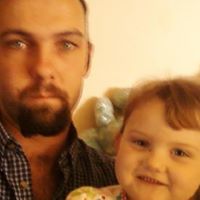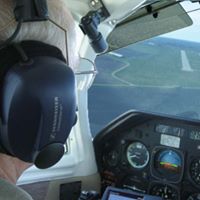John W Dame
age ~70
from Burlington, VT
- Also known as:
-
- John C Dame
- John L Dame
- John W Damejr
- John Dame Ll
- Jennifer Dame
- Kenneth Willis
- Joan Welch
- Phone and address:
-
135 Curtis Ave, Burlington, VT 05401
802 862-2101
John Dame Phones & Addresses
- 135 Curtis Ave, Burl, VT 05401 • 802 862-2101 • 802 863-2354
- Burlington, VT
- St George, VT
- 56 Wellington St, Colchester, VT 05446 • 802 863-2354
- Burlington, TX
- Baltimore, MD
- Essex Junction, VT
- St George, VT
Wikipedia

John Dame
view sourcePrivate John Dame (1784-?) was a member of the Lewis and Clark Expedition. Born in 1784 at Pallingham, New Hampshire, he was five feet nine inches in height
Us Patents
-
Intact Gene And Method Of Excising And Cloning Same
view source -
US Patent:47074450, Nov 17, 1987
-
Filed:Jul 31, 1984
-
Appl. No.:6/636261
-
Inventors:Thomas F. McCutchan - Silver Spring MD
John B. Dame - Rockville MD -
Assignee:The United States of America as represented by the Secretary of the
Department of Health and Human Services - Washington DC -
International Classification:C12P 1934
C12N 1500
C07H 1512 -
US Classification:435 91
-
Abstract:The present invention discloses isolated functionally intact whole genes and method of obtaining the same. The method includes treating genomic DNA with mung bean nuclease and formamide under controlled conditions. The invention also discloses cloning of said intact whole genes and a library of such cloned genes or any recombinations thereof. The invention is useful in deriving gene products as m-RNA, S-RNA, t-RNA, polypeptides and the like.
-
Cloned Genes Coding For Avian Coccidiosis Antigens Which Induce A Cell-Mediated Immune Response
view source -
US Patent:51224712, Jun 16, 1992
-
Filed:Feb 9, 1989
-
Appl. No.:7/308219
-
Inventors:Mark C. Jenkins - Bowie MD
Hyun S. Lillehoj - West Friendship MD
John B. Dame - Gainesville FL
Harry D. Danforth - Severn MD
Michael D. Ruff - Bowie MD -
Assignee:The United States of America as represented by the Secretary of
Agriculture - Washington DC -
International Classification:C12N 121
C12N 1500
C12N 1570
C12P 2102
C12P 1934 -
US Classification:4352523
-
Abstract:Disclosed are DnA sequences which code for antigenic proteins, methods for identifying such DNA sequences, and antigens coded for by such DNA sequences. The first step of the method is to provide a multiplicity of DNA sequences. These sequences are then inserted into DNA expression vectors to form recombinant expression vectors. The expression vectors are inserted into suitable hosts to form transformants which express the DNA sequences. The transformants are then contacted with antibodies directed against Eimeria antigens to identify transformants containing DNA sequences which code for Eimeria antigens. These antigens are then produced from the DNA sequences identified as coding for the antigens. The antigens so produced are contacted with white blood cells which effect a cell-mediated immune response, which white blood cells are sensitized to an antigenic Eimeria protein, to thereby identify DNA sequences which code for antigens that induce a cell-mediated immune response to avian coccidiosis. The DNA sequences of the present invention comprise cloned genes or fragments thereof that code on expression for an antigenic protein that activates white blood cells which effect a cell-mediated immune response, which white blood cells are sensitized to an antigenic Eimeria protein.
License Records
John Daniel Dame Rp
License #:
11494 - Active
Category:
Pharmacy
Issued Date:
Jun 21, 2000
Effective Date:
Jun 21, 2000
Expiration Date:
Jan 1, 2018
Type:
Pharmacist
John Daniel Dame Rp
License #:
3992 - Expired
Category:
Pharmacy
Issued Date:
Sep 23, 1996
Effective Date:
Jun 21, 2000
Expiration Date:
Sep 1, 2001
Type:
Pharmacist Intern
Lawyers & Attorneys

John Dame - Lawyer
view sourceISLN:
1000449724
Admitted:
2017
University:
Tufts University, B.A.
Law School:
Georgetown University Law Center, J.D.
Resumes

John Dame
view source
John Dame
view source
Managing Owner
view source
John Dame
view source
John Dame
view sourceMedicine Doctors

John B. Dame
view sourceSpecialties:
Family Medicine
Work:
Midtown Community Health Center
2253 S State St, Salt Lake City, UT 84115
801 486-0911 (phone), 801 486-0796 (fax)
2253 S State St, Salt Lake City, UT 84115
801 486-0911 (phone), 801 486-0796 (fax)
Education:
Medical School
University of Utah School of Medicine
Graduated: 2004
University of Utah School of Medicine
Graduated: 2004
Procedures:
Vaccine Administration
Arthrocentesis
Destruction of Benign/Premalignant Skin Lesions
Electrocardiogram (EKG or ECG)
Skin Tags Removal
Arthrocentesis
Destruction of Benign/Premalignant Skin Lesions
Electrocardiogram (EKG or ECG)
Skin Tags Removal
Conditions:
Disorders of Lipoid Metabolism
Abnormal Vaginal Bleeding
Acute Bronchitis
Acute Pharyngitis
Acute Sinusitis
Abnormal Vaginal Bleeding
Acute Bronchitis
Acute Pharyngitis
Acute Sinusitis
Languages:
English
Spanish
Spanish
Description:
Dr. Dame graduated from the University of Utah School of Medicine in 2004. He works in Salt Lake City, UT and specializes in Family Medicine.
Flickr
Googleplus

John Dame

John Dame

John Dame

John Dame

John Dame
Myspace
Plaxo

John Dame
view sourceHarrisburg, PAOwner at Dame Management Strategies

John Dames
view sourceSt. Louis, MO

John Dame
view source
John Dame
view source
John Dame
view source
John Dame
view source
John Dame
view source
John Dame
view source
John Dame
view source
John Dame Sevilla
view sourceYoutube
Classmates

John David Dame Dame
view sourceSchools:
Oakland Consolidated Oakland MS 1939-1943
Community:
Barbara Chance, Waltraud Carvan, Robert Upchurch

John Dame
view sourceSchools:
John Jay High School Hopewell Junction NY 2000-2004

John Dame, Ralston High S...
view source
Ralston High School, Rals...
view sourceGraduates:
John Dame (1983-1987),
Thomas Latzel (1995-1999),
Richard Barrett (1973-1977),
Michael Ough (1992-1996),
Debbie Plesa (1965-1969)
Thomas Latzel (1995-1999),
Richard Barrett (1973-1977),
Michael Ough (1992-1996),
Debbie Plesa (1965-1969)
Get Report for John W Dame from Burlington, VT, age ~70




















